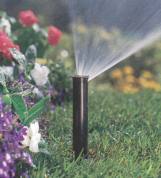Southern California Comprehensive Water Reclamation and Reuse Study
Southern California Area Office
| In southern California, the demand for water continues to increase as the supply decreases due to drought conditions, ground-water contamination, seawater intrusion, court decisions limiting diversions which supply water to Mono Lake and the San Francisco Bay Delta area of the State Water Project, and the limited delivery of 4.4 million acre-feet of water from the Colorado River entitlement. Historically, most wastewater has received either primary or secondary treatment and then has been discharged to land, surface waters, or to the ocean. Through a large-scale reuse strategy, reclaimed water would be an effective substitution for potable water for purposes such as irrigation, industrial applications, recreation, wildlife enhancement, and replenishment of ground-water aquifers. This, in turn, would leave more imported water available for potable uses.
Three phases of the study have been completed: compilation of data to analyze the optimum use of reclaimed water; development of preliminary designs and costs for specific projects; and identification of short and long-term projects. A final Congressional report was developed to summarize the findings of the project. The 3 major components of the report are:
More details on this study can be found on our Planning Activities page. |
Webmaster: Colleen Dwyer, cdwyer@usbr.gov
Updated: February 2005


 The Bureau of Reclamation, in cooperation with 8 state and local agencies, participated in the Southern California Comprehensive Water Reclamation and Reuse Study from 1992 through 1999. This $6 million study evaluated the feasibility of creating a long-range strategy for more effective development of water reuse programs in southern California's coastal and inland valley areas. The study covered a 6 county area, included over 7,300 demand points and all wastewater supplies in its databases. This data is being used to explore options to link available reclaimed water supplies with various demand points throughout southern California.
The Bureau of Reclamation, in cooperation with 8 state and local agencies, participated in the Southern California Comprehensive Water Reclamation and Reuse Study from 1992 through 1999. This $6 million study evaluated the feasibility of creating a long-range strategy for more effective development of water reuse programs in southern California's coastal and inland valley areas. The study covered a 6 county area, included over 7,300 demand points and all wastewater supplies in its databases. This data is being used to explore options to link available reclaimed water supplies with various demand points throughout southern California.